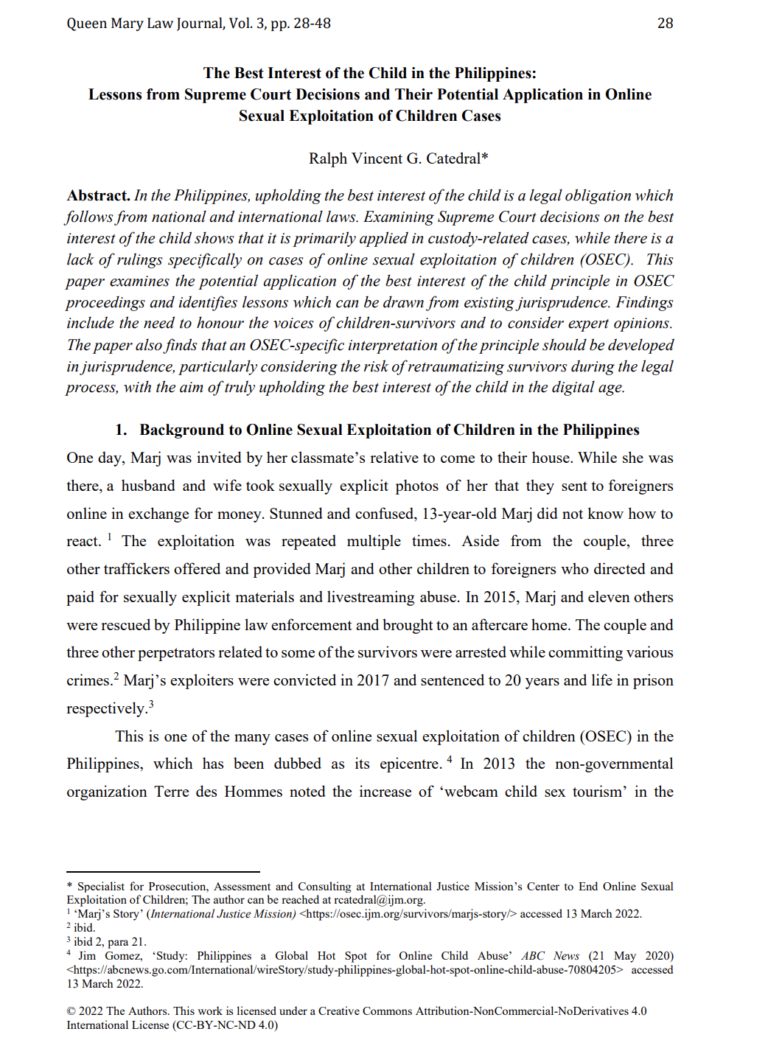In the Philippines, upholding the best interest of the child is a legal obligation which follows from national and international laws. Examining Supreme Court decisions on the best interest of the child shows that it is primarily applied in custody-related cases, while there is a lack of rulings specifically on cases of online sexual exploitation of children (OSEC). This paper examines the potential application of the best interest of the child principle in OSEC proceedings and identifies lessons which can be drawn from existing jurisprudence. Findings include the need to honour the voices of children-survivors and to consider expert opinions. The paper also finds that an OSEC-specific interpretation of the principle should be developed in jurisprudence, particularly considering the risk of retraumatizing survivors during the legal process, with the aim of truly upholding the best interest of the child in the digital age.

